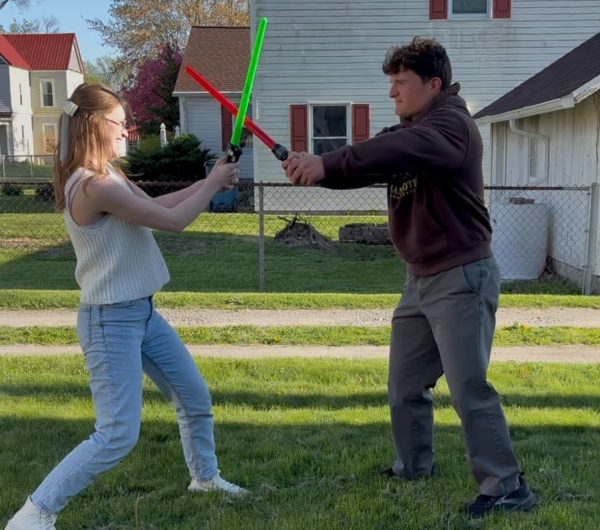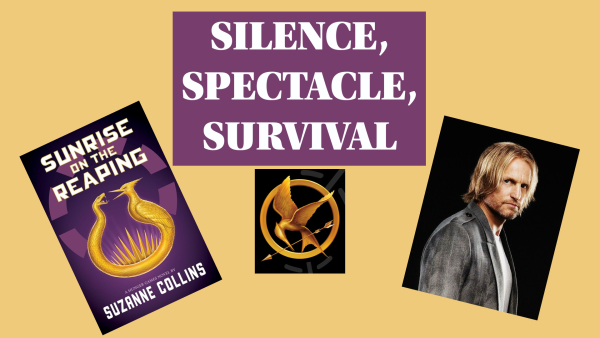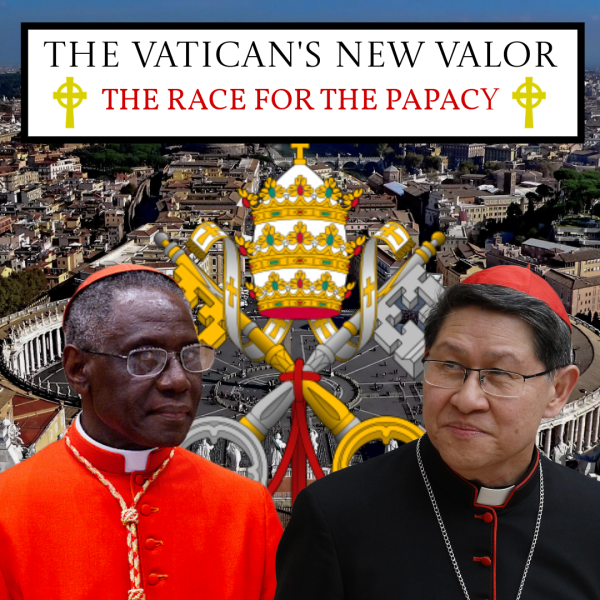A New Kind of Learning
When people ask me how I got so good at the “science thing,” I explain that my general understanding of things like biology, chemistry, and a little bit of physics come from my dad. From an early age I was encouraged to ask questions and some of my best memories involve his lengthy but thorough explanations for simple questions like “Why is the sky blue?” As I became older his answers were less straightforward and more aimed at making me come up with the solution. I wish everyone was given the opportunities I was at the age they were given to me, but I guess sophomore chemistry is the next best thing.
I walked into fifth period chemistry thinking it would be like every science class I had ever sat through at Lewis Cass: daily PowerPoints and countless notebooks filled with notes that practically copied the test. There would be a few labs sprinkled in to appeal to the hands-on learners but these labs were never abundant enough to help in the long-term. Then we would take a ridiculously long final and hit repeat. I don’t mean to be offensive; I have a record of doing very well in classes like this. I skated my way through those classes with minimal difficulty on my part, but a classroom shouldn’t be set up so that only one type of learner can succeed. While my biggest fear was being caught eating skittles during a lab, I was watching other students work relentlessly and then fail test after test. There was nothing in my history with the Lewis Cass science department that would lead me to expect what myself and my 20-some classmates were presented with when we walked into that chemistry classroom.
From the moment Mr. Thomas started talking, I felt as though I was sitting on the couch with my dad and he was explaining Rayleigh scattering to me. No PowerPoints, no notes, no next-to-useless worksheets, and the labs were actually going to teach me something that could be applied to real-life. Mr. Thomas even had a fancy name for what were going to be doing: guided-inquiry.
During that first day of chemistry Mr. Thomas made it clear that the material wouldn’t be “spoon fed” to us as though it had been up to this point. He would be more of a “guide on the side, rather than a sage on the stage” and because of this the class would be difficult. According to him, guided-inquiry should start at sixth or seventh grade and be a continuous part of the learning experience throughout high school. His reason for starting something now that should have been introduced to us a few years ago had to do with his new job as the AP Chemistry teacher.
“When attending AP Chemistry training last June, the professor and all the veteran Chemistry teachers shared their curriculums, and all had a guided-inquiry setup to their classes. The professor and these teachers also had some of the highest student passing rates in the nation. With a new laboratory classroom and new teaching assignment, I felt it was the best time for me to implement this guided-inquiry classroom setup at Cass.”
I knew I would love the class and I was thrilled that other students would have the same opportunity I had been blessed with earlier in my life. The class wouldn’t be math or detail centered; it would be about the “big ideas” involved in chemistry. Once the basic understanding of chemistry went up, the test scores would go up, and while I am no fan of standardized testing these exams are what currently dictates awards like research grants and scholarships. It is time that Lewis Cass students start competing with other schools that have had the guided-inquiry classroom in place for years.
Chemistry may be my only chance to experience a guided-inquiry class before college but a little bit is better than nothing. I have learned more in the last three weeks than I have in all of my previous science classes combined without the aid of a single PowerPoint or worksheet. More educators need to realize that their PowerPoints and worksheets will not be what follow people through their entire lives. Experiences are what people remember. Being able to think through problems using only the knowledge from those experiences is a skill very few possess but with new ways of teaching such as guided-inquiry I think it could be made much more common. In the end, guided-inquiry is about teaching people how to think instead of what to think. I believe that having a generation that knows how to think will be better than having a generation whose knowledge is incapable of being updated, especially when we learn something new every single day.






nia maroney • Feb 18, 2020 at 12:20 pm
I really like this article. It really shows how you learn, and how it is from your point of view.